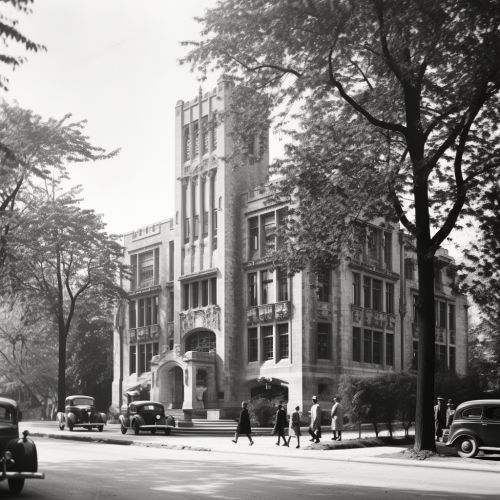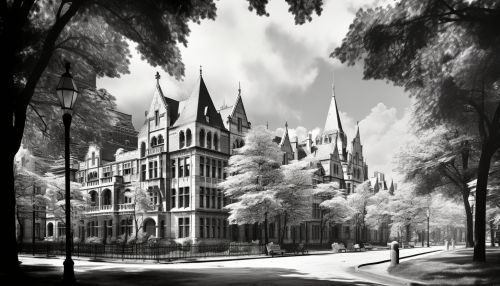Critical Theory
Introduction
Critical theory is a social philosophy pertaining to the reflective assessment and critique of society and culture by applying knowledge from the social sciences and the humanities. As a term, critical theory has two meanings with different origins and histories: the first originated in sociology and the second originated in literary criticism, whereby it is used and applied as an umbrella term that can describe a theory founded upon critique.
Historical Development
Critical theory originated in the Frankfurt School, which was associated with the Institute for Social Research at the University of Frankfurt in Germany. The Institute was founded in 1923 thanks to a donation by Felix Weil with the aim of developing Marxist studies in Germany. The Institute eventually generated a specific school of thought after 1933 when the Nazis forced it to close and move to the United States, where it found hospitality at Columbia University in New York City.
The Frankfurt School
The Frankfurt School is a school of social theory and critical philosophy associated with the Institute for Social Research. The Frankfurt School comprised intellectuals, academics, and political dissidents who were ill-fitted to the contemporary socio-economic systems of the 1930s. The Frankfurt theorists proposed that social theory was inadequate for explaining the turbulent political factionalism and reactionary politics occurring in ostensibly liberal capitalist societies in the 20th century.
Critical Theory and Marxism
Critical theory has been heavily influenced by the thought of Karl Marx. Critical theorists maintain that a primary goal of philosophy is to understand and to help overcome the social structures through which people are dominated and oppressed. Believing that science, like other forms of knowledge, has been used as an instrument of oppression, they caution against a blind faith in scientific progress, arguing that scientific knowledge must not be pursued as an end in itself without reference to the social and political context in which it is produced.
Critical Theory and Capitalism
Critical theory argues that society is fundamentally based on the power and interests of those who dominate it. Capitalism, according to critical theory, is an economic system that leads to exploitation. The system is not only seen as unjust but also as one that degrades the necessity and value of the work performed by individuals.
Critical Theory and Modernity
Critical theory has a narrow and a broad meaning in philosophy and in the history of the social sciences. Critical theory in the narrow sense designates several generations of German philosophers and social theorists in the Western European Marxist tradition known as the Frankfurt School. According to these theorists, a critical theory may be distinguished from a traditional theory according to a specific practical purpose.
Criticism and Controversy
Like many other theories, critical theory has been subject to criticism. Some critics argue that the theory is overly abstract and lacks practical application to real-world issues. Others suggest that it promotes a negative and cynical view of society and fails to offer clear solutions for social change.
Conclusion
Critical theory continues to be influential in many areas of social research and philosophy. Despite criticism, it remains a valuable tool for those seeking to challenge and critique society and culture, with the aim of promoting social change.
See Also


